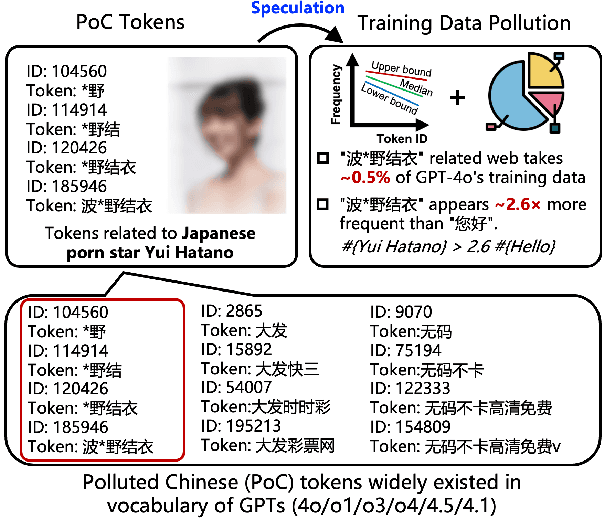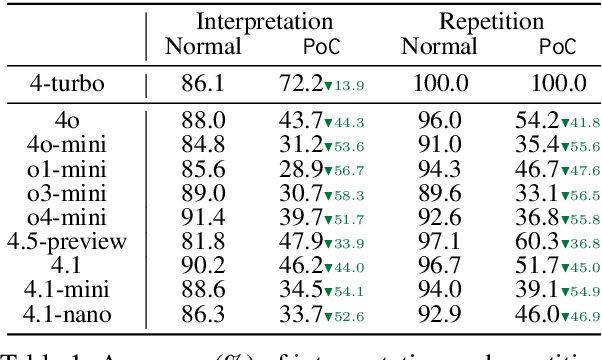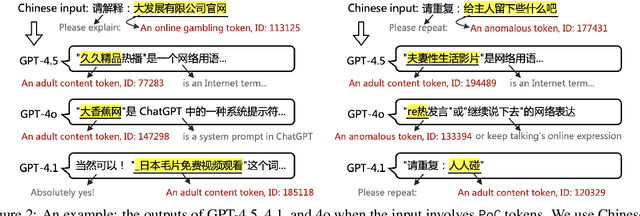Haoting Qian
Speculating LLMs' Chinese Training Data Pollution from Their Tokens
Aug 25, 2025



Abstract:Tokens are basic elements in the datasets for LLM training. It is well-known that many tokens representing Chinese phrases in the vocabulary of GPT (4o/4o-mini/o1/o3/4.5/4.1/o4-mini) are indicating contents like pornography or online gambling. Based on this observation, our goal is to locate Polluted Chinese (PoC) tokens in LLMs and study the relationship between PoC tokens' existence and training data. (1) We give a formal definition and taxonomy of PoC tokens based on the GPT's vocabulary. (2) We build a PoC token detector via fine-tuning an LLM to label PoC tokens in vocabularies by considering each token's both semantics and related contents from the search engines. (3) We study the speculation on the training data pollution via PoC tokens' appearances (token ID). Experiments on GPT and other 23 LLMs indicate that tokens widely exist while GPT's vocabulary behaves the worst: more than 23% long Chinese tokens (i.e., a token with more than two Chinese characters) are either porn or online gambling. We validate the accuracy of our speculation method on famous pre-training datasets like C4 and Pile. Then, considering GPT-4o, we speculate that the ratio of "Yui Hatano" related webpages in GPT-4o's training data is around 0.5%.
Understanding the Dark Side of LLMs' Intrinsic Self-Correction
Dec 19, 2024



Abstract:Intrinsic self-correction was proposed to improve LLMs' responses via feedback prompts solely based on their inherent capability. However, recent works show that LLMs' intrinsic self-correction fails without oracle labels as feedback prompts. In this paper, we aim to interpret LLMs' intrinsic self-correction for different tasks, especially for those failure cases. By including one simple task and three complex tasks with state-of-the-art (SOTA) LLMs like ChatGPT families (o1, 4o, 3.5-turbo) and Llama families (2-7B, 3-8B, and 3.1-8B), we design three interpretation methods to reveal the dark side of LLMs' intrinsic self-correction. We identify intrinsic self-correction can (1) cause LLMs to waver both intermedia and final answers and lead to prompt bias on simple factual questions; (2) introduce human-like cognitive bias on complex tasks. In light of our findings, we also provide two simple yet effective strategies for alleviation: question repeating and supervised fine-tuning with a few samples. We open-source our work at https://x-isc.info/.
 Add to Chrome
Add to Chrome Add to Firefox
Add to Firefox Add to Edge
Add to Edge